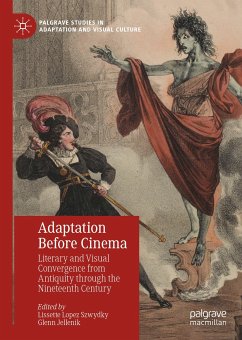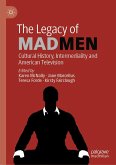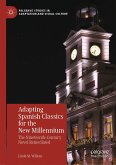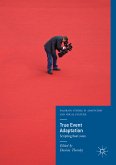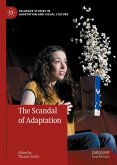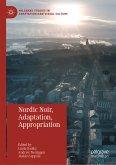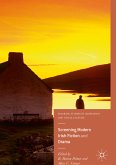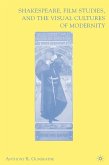Adaptation Before Cinema highlights a range of pre-cinematic media forms, including theater, novelization, painting and illustration, transmedia art, children's media, and other literary and visual culture. The book expands the primary scholarly audience of adaptation studies from film and media scholars to literary scholars and cultural critics working across a range of historical periods, genres, forms, and media. In doing so, it underscores the creative diversity of cultural adaptation practiced before cinema came to dominate the critical conversation on adaptation. Collectively, the chapters construct critical bridges between literary history and contemporary media studies, foregrounding diverse practices of adaptation and providing a platform for innovative critical approaches to adaptation, appropriation, or transmedia storytelling popular from the Middle Ages through the invention of cinema. At the same time, they illustrate how these forms of adaptation not only influenced the cinematic adaptation industry of the twentieth century but also continue to inform adaptation practices in the twenty-first century transmedia landscape. Written by scholars with expertise in historical, literary, and cultural scholarship ranging from the medieval period through the nineteenth century, the chapters use discourses developed in contemporary adaptation studies to shed new lights on their respective historical fields, authors, and art forms.
Lissette Lopez Szwydky is Associate Professor of English at the University of Arkansas, USA, and author of Transmedia Adaptation in the Nineteenth Century (2020). She specializes in nineteenth-century literature and culture, adaptation and transmedia storytelling, and gender studies.
Glenn Jellenik is Associate Professor of English at the University of Central Arkansas, USA. His research focuses on long-eighteenth-century adaptation. His essay, "The Origins of Adaptation, as Such: The Birth of a Simple Abstraction" (Oxford Handbook of Adaptation Studies (2017)), traces the rise of contemporary notions of adaptation to the Romantic period.
Dieser Download kann aus rechtlichen Gründen nur mit Rechnungsadresse in A, B, BG, CY, CZ, D, DK, EW, E, FIN, F, GR, HR, H, IRL, I, LT, L, LR, M, NL, PL, P, R, S, SLO, SK ausgeliefert werden.

